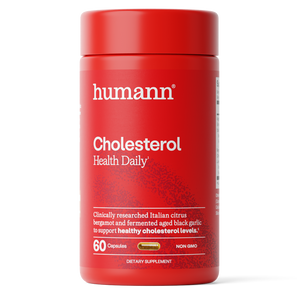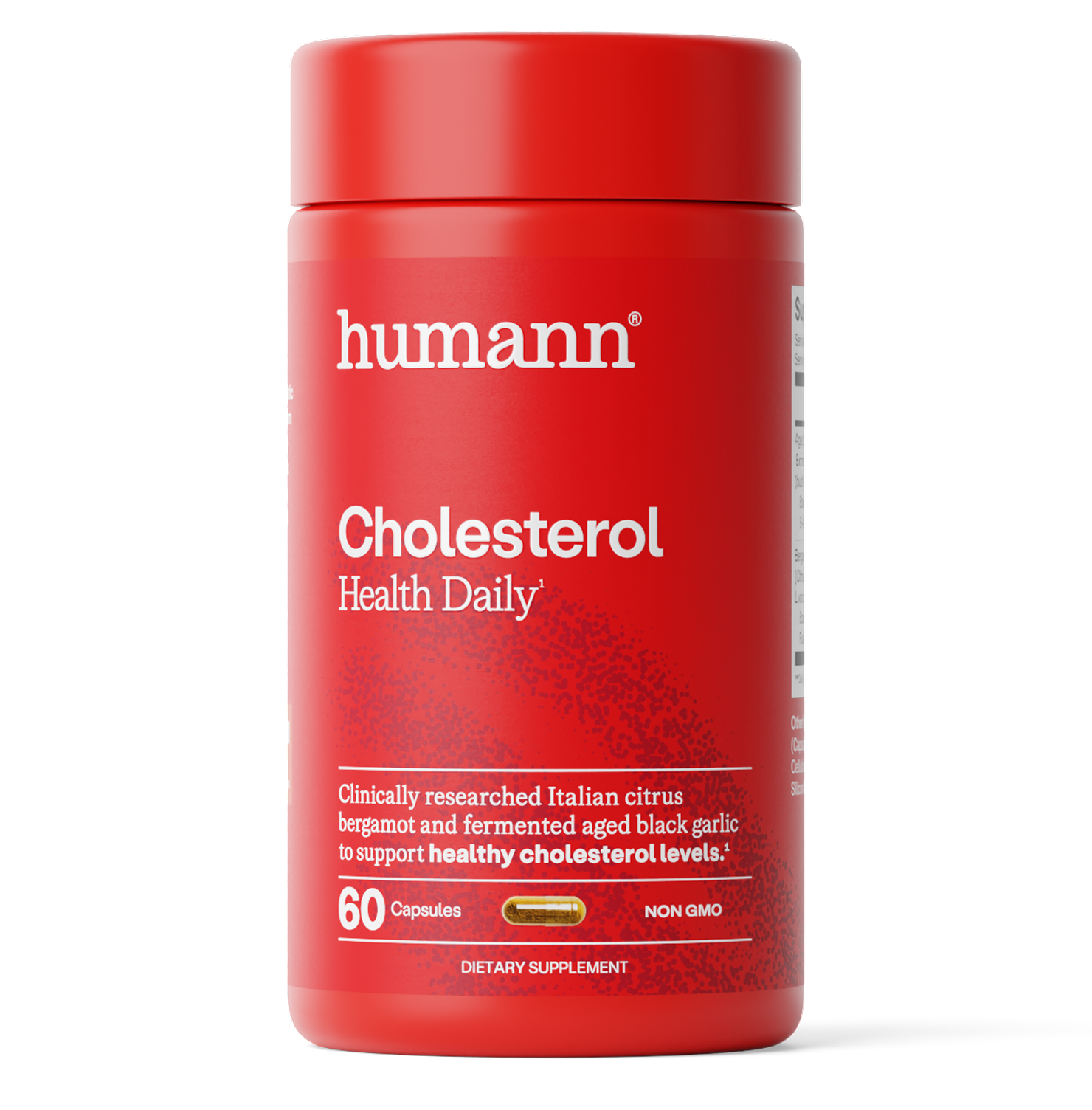As we age, many of us notice that maintaining a healthy weight or feeling energized throughout the day becomes a little harder than it used to be. You might chalk it up to "just getting older.” But what could be going on behind the scenes is a natural shift in metabolism.
The good news is, there are steps you can take to stay ahead with some simple lifestyle changes to support a healthy metabolism at any age.
The Big Picture on Metabolic Health
Before we dive into why metabolism slows with age, it’s worth zooming out.
Metabolic health refers to how efficiently your body processes and uses energy from the food you eat. It impacts key markers like blood sugar, blood pressure, cholesterol, and weight. Your metabolic health is also closely linked to maintaining a healthy cardiovascular system and overall health. Together, your metabolism and cardiovascular system form the foundation of your cardiometabolic health, a key driver of long-term vitality and disease prevention.
According to a Tufts University study, only 6.8% of American adults had optimal cardiometabolic health. This means over 93% had at least one risk factor like high blood pressure, poor blood sugar control, or excess weight. A separate 2019 study reported that 88% of U.S. adults were metabolically unhealthy by criteria for metabolic syndrome.
Together, these stats make one thing clear: metabolic health is already compromised for most adults, even before age-related changes kick in. That’s why taking steps early, and consistently, to support your metabolism matters.
Why Metabolism Slows With Age
Around age 30, metabolic rate begins to gradually decline about 2–3% per decade. Why?
· Muscle mass decreases: Muscle burns more calories than fat, even at rest. But with age, we naturally lose lean muscle unless we actively work to preserve it. After age 30, adults lose about 3-8% of their muscle mass per decade. Less muscle means fewer calories burned at rest, leading to a slower metabolism unless strength-training or other interventions are used. Only 23% of adults aged 45–64 meet muscle-strengthening guidelines. Since strength training is key to preserving metabolic health, this stat reveals a major opportunity for intervention.
· Hormonal changes: Shifts in hormones like estrogen, testosterone, and growth hormone can affect how your body stores fat and builds muscle. Hormonal shifts can reduce metabolic rate and increase fat mass. Menopause-related estrogen decline can cause a redistribution of fat and a dip in resting metabolic rate, even in active women.
· Reduced activity levels: Busy schedules, work demands, and recovery from injuries can make it challenging to stay active as we age. A recent study found that by the time the majority of adults reach their 50s and 60s, they burn approximately 120 fewer calories per day compared to their younger years. This is primarily due to muscle loss and reduced physical activity. Without adjustments to diet or exercise, this drop in calorie burn can contribute to gradual weight gain over time.
Easy Lifestyle Upgrades to Help Keep Your Metabolism Energized
Just because your metabolism changes doesn’t mean you have to slow down. There are proven ways to support a healthy metabolism at any age.
"In my metabolic optimization program, I'll have 80-year-old patients that are still deriving a lot of benefit,” says Dr. Sanjay Bhojraj, MD, a leading cardiologist. “Because when you optimize your cardiometabolic health, you just feel better. Your brain is firing in all cylinders. Things just seem to make more sense.”
Here are a few simple, actionable tips to get started:
1. Focus on Strength Training
Resistance exercises like lifting weights or using resistance bands help maintain and even build muscle mass. More muscle equals a higher resting metabolic rate. Aim for 2–3 sessions per week.
2. Prioritize Protein
Eating enough high-quality protein not only supports muscle but also takes more energy to digest, giving your metabolism a small but meaningful boost. Include a good source of protein with every meal and snack.
3. Don’t Skip Meals
Skipping meals can cause your body to conserve energy and slow metabolism. Instead, fuel up consistently with balanced meals to keep your energy steady and metabolism humming.
4. Get Quality Sleep
Poor sleep affects hunger hormones and insulin sensitivity, which can make your metabolism sluggish. Aim for 7–9 hours of quality sleep each night.
5. Support Mitochondrial Health
Your mitochondria are the powerhouses of your cells and healthy mitochondria mean better energy production. Some doctors recommend targeted nutrients or supplements to support mitochondrial function as you age.
"I've just been a huge fan of berberine for forever,” says Dr. Sanjay. “I think if there's any one supplement that people ask me from a cardiometabolic standpoint, what do I need to be on? I always point them to berberine.”
The Takeaway
Taking proactive steps to support your metabolic health now can have a lasting impact on how you feel and function. Small changes today can help you stay energized, strong, and resilient at any age.

















